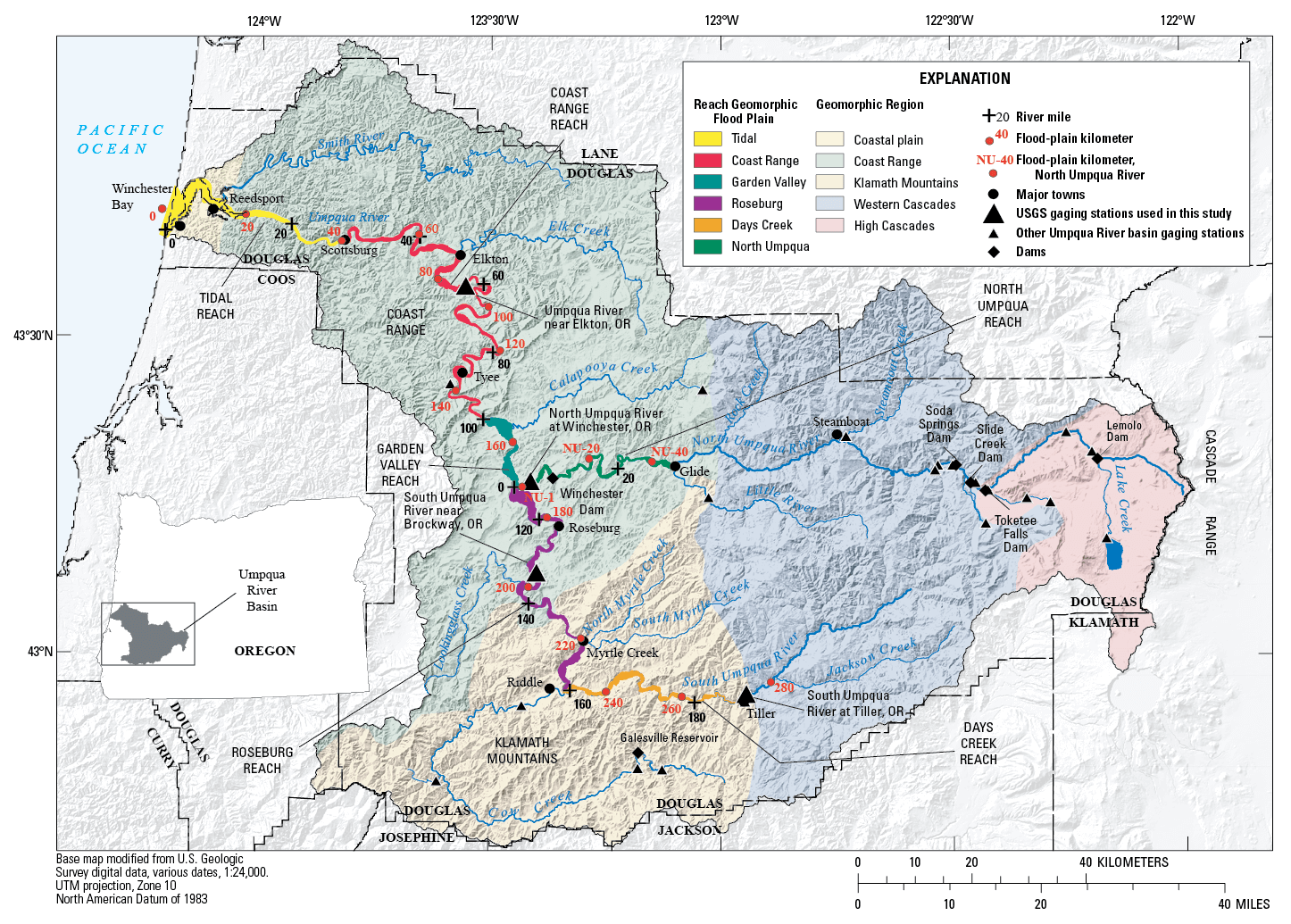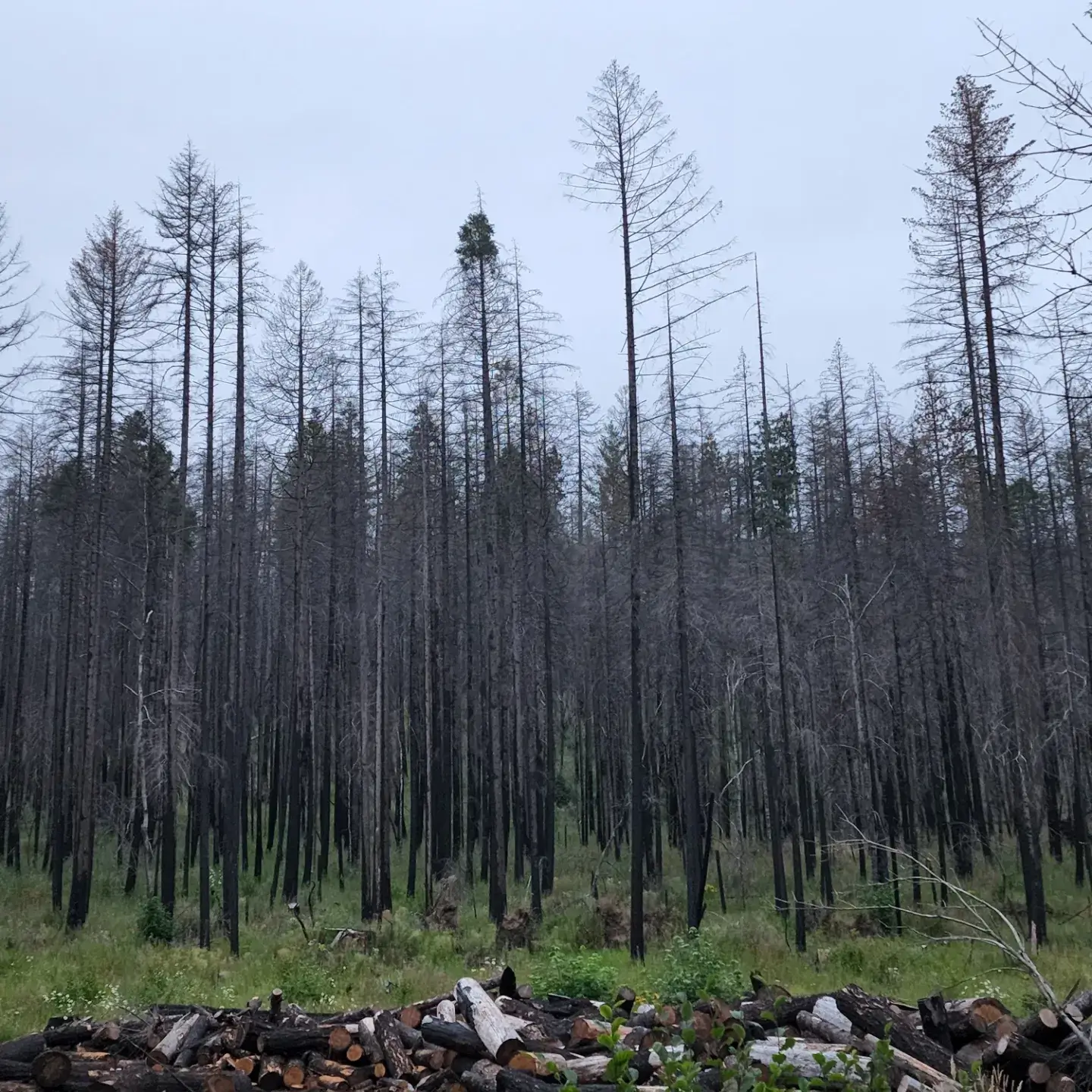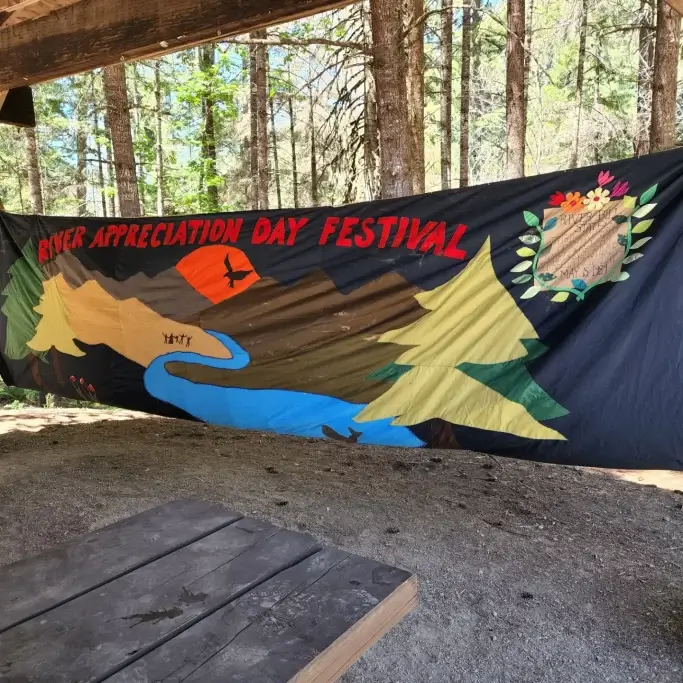Restoration and Reflection in the Umpqua Watershed
For 35 years Oregonians have celebrated their local rivers during River Appreciation days, and this year River Network staff were on hand to join in the fun. Started in the town of Roseburg, Oregon, in 1987 in response to concerns about the water quality degradation of the Umpqua River, the third Saturday in July is one of joy, fun, and gratitude. This particular year, there was also the sense of renewal, hope, and reflection, coupled with the continued grief for the landscape as it was before September 8, 2020, when the Umpqua watershed and its communities were devastated by the Archie Creek Fire.


A combination of high winds, dry conditions, and downed power lines led to the largest fire on record in the area, consuming over 100,000 acres within 24 hours. Acres of old growth forest, trail systems, residential and recreational buildings, and a local fish hatchery were all destroyed. Local and state foundations and grant programs immediately responded and have continued to offer support to restore what was lost. One of the key organizations in this effort is Umpqua Watersheds. An all-volunteer run organization, Umpqua Watersheds is dedicated to the protection and restoration of the ecosystems of the Umpqua through education, training, advocacy, and ecologically sound stewardship. Through our partnership with the US Forest Service (USFS), River Network was also able to provide additional funds to the restoration effort.
Over the past four years, River Network and the USFS have offered funding opportunities to organizations working on USFS administered Wild and Scenic Rivers and surrounding lands. Of the 131,580 acres burned, 70% of the area was classified as medium or high severity and half of that was located on federal land including along the Umpqua Wild and Scenic River. Umpqua Watersheds was able to combine federal Wild and Scenic funding with other foundation and grant support to begin restoring the natural areas, while also providing service-learning opportunities for local students and community volunteers. The organization’s collaboration with a local charter school and community college resulted in 2,000 trees and shrubs planted, over 100 pounds of native seed spread, over 800 square feet of noxious weeds removed, and 1.5 miles of tread on the Mott Section of the North Umpqua Trail given much-needed maintenance.

When Umpqua Watersheds Executive Director Kasey Hovik graciously invited me out for the 35th anniversary of River Appreciation days to see this work and its impacts in person, I eagerly accepted. Upon arrival, I was astounded by the beauty and wonder that is the Umpqua. Throughout the day, I had the special privilege of speaking with several community leaders, Umpqua Watershed Board members, and AmeriCorps members. They shared their experiences living and recreating throughout the watershed, the challenges they’ve faced balancing recreational and industrial interests, and their advocacy efforts focused on the creation of the Crater Lake Wilderness. They also shared what was lost as part of the Archie Creek Fire, many of them stating it still breaks their heart to think of what the forests and riparian corridors looked like before September 2020. Underlying their stories was a sense of pride—pride in where they live, pride for how the community came together during the wildfire and, most of all, pride for how they will continue to push forward their efforts to restore and protect the mighty Umpqua.
We were thrilled to see the impact of the Wild & Scenic Rivers Stewardship Partnership funding in this gorgeous Oregon landscape and can’t wait to see how the projects the 2022 grantees are working on unfold. Meet this year’s grantees in Katherine Baer’s recent blog post, and if you’re ever in Oregon, be sure to visit the Umpqua!





